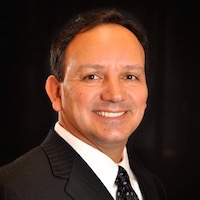Tag Archives: Frustration
From Frustration to Fruition: What to Do When Nothing Goes Your Way
Do you ever find yourself in a place where, despite your best efforts, nothing seems to be working out the way you want it to? 
Maybe you have an amazing idea that you just can’t seem to get off the ground. Perhaps you have made progress toward a goal and suddenly feel stymied and blocked or unable to gain the resources or support you need to move forward. You might be navigating some kind of transition that has left you wondering whether that next thing for you is ever going to materialize.
When obstacles seem to be coming from all directions and you just keep running into walls, it’s easy to lose hope and become consumed with frustration.
Sometimes it seems that the only options are to throw in the towel or buckle down and try harder. We are conditioned as a society to do the latter, and sometimes that is what it takes to bust through the barriers that confront us. But when we continue to run into setback after setback, it may serve us better to stop for awhile and survey the territory before we take action again — as we may find that what we thought was a frustrating delay is actually integral to getting us where we want to go.
Have you ever had a customer that wanted something that required a great deal of preparation but didn’t want to take the time to build the necessary foundation? If you proceeded as directed, in time the solution could go up in smoke leaving that customer worse off than they were before — or in the very best case, less than satisfied. But the customer wasn’t interested in hearing about why the delays were necessary and instead kept pushing and pushing for results.
Sometimes when we force things to happen, we are like that customer who doesn’t know what he doesn’t know and insists on powering up the engines before they are finished being built. He creates so much noise and distraction that it makes it difficult to focus on what truly needs to happen in order to get back on course. That’s what our frustration and anxiety does to us when we get caught up in it.
There is a part of you that knows exactly what you need to do to succeed in any given area – a part of you that has knowledge of a bigger picture and all the moving parts necessary to bring your grandest goals and visions to fruition.
While the part of you that is like the impatient customer that wants what he wants, this bigger part of you knows intuitively that things are happening in just the right way to yield the best results. The bigger part of you can only communicate to you in nonlinear ways — through feelings and flashes of insight that leave your logical mind wanting more details. And it only communicates in the present moment.
To tap this bigger part of yourself, you must learn to become attuned to what is going on in this moment, trusting that in the midst of frustrating delays and setbacks there may be something right in front of you that needs your attention. If you do not give it your attention you may continue to experience even more resistance and frustration. But if you move into it, you will find exactly what you need in order to move forward.
When I was writing my book, The Pinocchio Principle: Becoming a Real Leader, I hit a wall and experienced the dreaded writer’s block. I powered through it, forcing myself to write in spite of my lack of inspiration. Before long I realized that I simply couldn’t continue and put the manuscript away for awhile. In the months that followed, I had a number of experiences that were critical to writing the book. When my inspiration was renewed and it was time to return to my writing, I ended up throwing away everything I made myself write under my own duress, as it was flat, mechanical and uninspired. I replaced it with stories about the previous months’ experiences. As I wrote, the words seemed to fly onto the page and I was back in my flow again.
You too may be in a state where before you are ready to move onto the next phase of your greatest vision, goal or initiative, you must experience something that will give you just what you need to succeed. So when you feel that frustration, see if you can look at your situation with eyes that see beyond what appears to be limitation and perceive the gifts it is bringing you. It could be the very springboard you need to get you back in your game.
And if you’d like to learn more about how to ride the waves of life’s challenges and setbacks with greater effectiveness and less stress, consider enrolling in The Pinocchio Principle Unleashed: The Real Leader’s Guide to Accessing the Freedom & Flow of Your Authentic Genius. This 13-week leadership development program is designed to help high achieving professionals bring out their very best performance in a way that fills them up rather than depleting them – and allows them to make a bigger impact doing meaningful, inspiring work while leading others to do the same.
Though the fall session is now full, you can join the waiting list (with no obligation) to get first dibs on spring session seats before registration opens to the public.
Lightening Your Load: Mind Over Matter

Have you ever noticed that your experience directly reflects your state of mind? When your mind is cluttered, your surroundings have a way of mirroring that. Feelings of being scattered are often accompanied by piles of unfinished business everywhere you look or lists and notes of things to do that seem to multiply.
When you feel heavy and bogged down, everything you do will feel harder and more cumbersome.
You may think that the way you feel is a result of your experiences, and that is true — the more you have to do, the more overwhelmed you will feel. But the reverse also applies — the more overwhelmed you feel, the more you are likely to approach things in a way that draws them out — perhaps by procrastinating, making things more complicated than they need to be, or using more energy to resist and worry than it would take to actually get things done. If you become fixated on evidence that suggests you can never rise above the way you are feeling, you’ll trap yourself in vicious circles where you will continue to see that which you long to rise above and feel the frustration of not being able to break free.
In fact, your frame of mind with everything you do will have a direct effect on whether the experience of doing it will be exhilarating and satisfying or frustrating and heavy.
The stories we tell ourselves have a way of coming true – “There’s just way too much to do and not enough time to do it. I’m too busy to do anything fun, to take time out for my family, friends or myself, to ever get beyond the day to day and into those things I dream about…” The way out of the traps we set for ourselves is to start not with our experiences, but our thoughts.
One day a while back, I turned into my driveway and caught sight of the hedges that needed trimming. “Wouldn’t it be fun to drop everything and go cut those right now – to just get out there and work in the yard for awhile?” I found myself thinking. And then I laughed as I realized that this task that seemed so enjoyable compared to the list of things on my plate at that moment was one of the very things I was dreading a few weekends ago. The task itself hadn’t changed, just the way I was thinking about it.
And it hit me that perhaps there was a way to transform all the things I needed to do that day — which were really bringing me down — into experiences that could be lighter and simpler — and maybe even fun. The key had to be in the way that I approached them – in what I was believing about them, and what I was focusing on as I did them. As I became aware of my attitude toward the tasks at hand, I realized that I was more fixated on checking the box than I was on enjoying the experience. And I was also swept up in the belief that the work ahead of me was going to be hard, onerous and complicated.
What if all that changed? What if instead of believing I had to get everything done perfectly, I just played at things, took myself a little less seriously, and lightened up a bit? And what if instead of believing I needed to get it ALL done, I just focused on what was most important — most aligned with the highest priorities in my day and in my life? And what if instead of driving solely toward the outcome, I allowed myself to be fully present in every moment that led up to it? Hmm.
Marcel Proust once said, “The real voyage of discovery consists not in seeking new landscapes, but in having new eyes.” And I have also heard it said that when you change the way you look at things, the things you look at change.
The fundamental shift must come not in what you do, or even how you do it, but what you are thinking, believing and allowing yourself to feel about what you are doing.
To this end, setting an intention or statement of our desired experience can be very powerful. If what you want is greater freedom and joy, more meaning and satisfaction and heightened effectiveness, you must align your thoughts around enjoying those experiences before you even start. And you need to become diligently aware of the degree to which your thoughts stay aligned with your overarching intention. When they drift, you can come back to them, remember what you really want, and align yourself with the state you wish to be in once again.
In this way, you can break the vicious cycle of allowing your experiences to bring you down in ways that result in more lousy experiences — and begin anew. You consciously align your thoughts with what you most want, rather than letting them denigrate into the negative emotional states you seek to rise above. Your actions align with your thoughts, and you’ll find yourself coming up with creative ways to simplify, get focused on what is most important and get it done while enjoying yourself in the process – and sharing your joy with everyone around you.
Looking for a better way to lighten your load?
Check out the The Pinocchio Principle Unleashed: The Real Leader’s Guide to Accessing the Freedom & Flow of Your Authentic Genius, an exclusive 13-week leadership development program designed to help high achieving (and often overextended) leaders minimize pressure and stress so they can access their best work — and enjoy their lives more both on and off the job.
Registration for the fall session is now open! The program will kick off on Wednesday 9/22 and go through early December. To maximize individualized support and interaction, enrollment is limited to 8-10 people. Click here for more information or to reserve your seat.
The Gift of Chaos (and How to Leverage It)
“Chaos often breeds life, when order breeds habit.”
~ Henry B. Adams
Like many of us, I grew up thinking that things happened in a linear way.
First this, then that. One building block upon another in a definite order. Cause and effect. But over the years, I’ve noticed that life isn’t always like that.
Often it seems life is a series of random events that don’t seem to make much sense.
But when you have a larger vision and experience that vision as though it has already happened, you can begin to see this apparent chaos in a whole different way. Often what we experience is a chain of seemingly disjointed events that are in reality very connected.
Think of watching a movie of a glass shattering, only in reverse motion.
Pieces fly together from all directions in a disjointed fashion and assemble into a perfect whole. Each piece is absolutely necessary, though, in and of itself, incomplete and inconceivably connected to a larger picture.
We will experience ups and downs and travel roads that deviate from what we anticipated.
Nevertheless, these seemingly divergent paths may in fact be prerequisite to experiencing the totality of our vision. At times the healing process entails pain, discomfort or other symptoms. While we may point to these as signs of illness, we could alternatively consider them evidence of our recovery.
Seasons will change, and so will we.
A phase of growth and expansion is often preceded by a period where things unexpectedly fall away. We can look at the void as a loss, or recognize it as the space necessary for new creations to take root and flourish.
We may not initially realize the significance or relevance of our chaotic experiences.
But in hindsight we often realize the importance of enduring specific challenges, setbacks, delays, or what felt like irrelevant nuisances. These obstacles give us a greater perspective on who we are, deeper appreciation for where we have been and where we are going, and compassion for others who have experiences similar to our own.
As we rise up to these little challenges, we find strength we didn’t know we had and realize we are far greater than we thought we were. And as leaders, we can help others appreciate and leverage their own chaos as well.
Appreciating the perfect order unfolding in our lives more of an art than a science.
Most of us never really take the time to recognize it. If you are interested in leveraging the seeming chaos in your own life and life’s work, I encourage you to consider enrolling for the fall session of The Pinocchio Principle Unleashed: The Real Leader’s Guide to Accessing the Freedom & Flow of Your Authentic Genius, kicking off the week of September 23rd.
The program is filling up – and it is a great group of people so far! Enrollment is limited – click the link to save your seat.
How You Can Use Frustration To Improve Your Effectiveness
“I’m so tired of feeling unorganized and scattered all the time.”
A client told me in a recent meeting. He added, “I come into the office and there are papers flung all over my desk, half started projects buried in piles with new requests heaped on top of them. But I never seem to have time to go through them because by the time I get there, a line of people waiting to talk to me has already formed outside my door and I have no choice but to spring into action. And my days are full of requests that add new papers, projects and action items to a pile that grows faster than it shrinks.”
He felt like Sisyphus – like he was constantly pushing a big rock up a hill only to have it roll back down as soon as he got near the top.
“What do you think I should do about it?” he asked me. I knew he wouldn’t like my answer.
“Move into it,” I told him. “Tell me more about how starting your day like that affects the quality of your life.”
He was perplexed. “Why would I want to move into something so awful? Shouldn’t I be figuring out how I can move away from it? Rise above it?”
He was essentially living as Bill Murray’s character in Groundhog Day, constantly reliving the same day over and over again. However, there are hidden gifts in such a predicament.
Fuel
That is the reaction most of us (including yours truly) have when faced with an unpleasant predicament. But rising above an unpleasant predicament often requires us to change habits or patterns that are ingrained and comfortable. And initiating and sustaining a change like that requires fuel — fuel that will allow us to break through our obstacles and limitations at the very moment when it seems most difficult.
Change occurs when the pain of the current state is greater than the perceived pain of making a change, and the pleasure of making a change is greater than the pleasure (or payoff) of staying the same.
When you truly move into your frustration, you begin to open your eyes widely to recognize the impact a problem is having on your life. You allow yourself to accept that this pain will continue until you do something about it. And until you are truly ready to do something about it, you will continue to do what you’ve always done and suffer as a result.
This can be done long before you know what that solution is. And just as you can move into your pain, so too can you move into the pleasure of what life would be like without your problem. This too, serves as fuel that will ultimately allow you to do what it takes to create and implement a lasting solution.
Insight
Moving into your frustration illuminates not only the problem, but also the underlying factors that contribute to and exacerbate that problem. It gives you insight.
Most of us instinctively move away from pain, firing shots over our shoulder at what we believe to be the antagonist without really recognizing or locking onto a target.
To really know what needs to be done to slay the beast, my client needed to take a closer look and recognize what it eats, how it grows stronger, and how he might unwittingly be feeding and nurturing it. That’s exactly what moving into the frustration with a spirit of curiosity does.
When he got curious about his predicament, he began to notice that he had a tendency to book his appointments back-to-back, starting first thing in the morning and say yes to more things than he could realistically accomplish. He realized that he didn’t have a clear sense of what was truly a priority and that in the absence of that clarity, he was making everything number one — except his own sanity.
The more awareness he cultivated in the presence of his frustration, the more he began to identify and understand what was really causing your frustration. This also led my client to discover and embrace the third gift of frustration.
Possibility
Insight opens the door to possibility. Once you have an understanding of the factors that cause or contribute to a problem, you begin to recognize a multitude of options that can lead to lasting resolution.
In the days and weeks that followed, my client identified a number of strategies that could potentially work for him, including scheduling, communication, and delegation tactics.
The next time you feel like you are living the life of Bill Murray’s character in the movie Groundhog Day, remind yourself that frustration comes bearing gifts. Reliving the same experience over and over again isn’t so bad if it ultimately yields fuel, insight, and possibility. Move into your discomfort, pay attention, get curious, and connect the dots. Then, you too will find a way to transform your frustration into freedom.
If you are interested in additional strategies for recognizing and moving beyond self-limiting patterns of behavior and thought, I encourage you to check out The Pinocchio Principle Unleashed: The Real Leader’s Guide to Accessing the Freedom & Flow of Your Authentic Genius, an exclusive 13-week leadership development program kicking off the week of April 1st.
Feel Like You’re Spinning Your Wheels? How to Get Unstuck
Have you ever had a really hard time getting something done? Something big?
When you are up against a large task or project, it’s easy to become overwhelmed by the details and the magnitude of what is before you. Sometimes it hard to know where to start, and once you do it can feel like a never-ending process. To make matters worse, when the project you are working on necessitates that you do something new—something uncomfortable and challenging—it often elicits fear, frustration, and anxiety. All of these things can keep you feeling stuck.
In a state of overwhelm, the focus goes from the joy of getting something done to the aggravation of having something undone.
We can become mechanized in our attempts to figure out what needs to get done and exactly how to go about it. We may also put a lot of pressure on ourselves and beat ourselves up for things we haven’t done, rather than recognizing and acknowledging ourselves for what we have done.
In what is often an unconscious attempt to regain a sense of control, we are easily lulled into doing things that we know will be easier and potentially more enjoyable.
Some tasks don’t really need to get done right now (or ever) or should really be delegated to others, but we often prefer those. Some of the time-wasters we get sucked into include surfing the web, making idle conversation, cleaning out your inbox, or—my personal favorite—making more lists of everything we think needs to get done and identifying all the steps we need to take. This is actually a great thing to do when you’re focused, but, in a procrastination mode, it becomes to planning to plan—and then plan some more—until you have a rock solid strategy that you never actually execute.
It may feel like you are spinning your wheels—running like hell and just not getting anywhere.
I know this, of course, because I have been there. Repeatedly. And I’ve worked with others who fall into this pattern, as well, to stop the madness by recognizing what’s happening and making a shift to get back on a road that leads them where they need to go.
One of the most powerful things I have found for breaking out of a “spinning your wheels” cycle is to take some time to revisit your purpose—or the larger mission or goal behind what you are doing.
- Get clear about what—or who—the work is for.
- Identify how it will improve the quality of life for yourself or those around you.
- Reflect on the degree to which it will help people, contribute to something greater, or allow you to achieve a meaningful goal for yourself.
This doesn’t have to take hours and hours. Just pause for a few moments and ask, when this project/task/ initiative is finished, what larger goal or purpose will it accomplish? What would you like to accomplish? Write it down. Add to it as you think of additional bonuses. Then, sit for a moment and see if you can envision what it would feel like to satisfy that larger purpose, vision or goal. See if you can feel it so clearly that you are actually grateful for it.
This simple act will help you reconnect with something inside you that will propel you beyond the minutia. It will give you the courage and strength to walk through your fear or resistance to do something that you may not be so good at yet. And it will help you to get back to the joy that comes through the process as well as the attainment of the end goal.
When you approach things in this manner, all that you do will be instilled with a new energy—one that uplifts, delights, and inspires.
Whatever you experience as you work on a project will be the same thing people will feel when they partake of the fruit of your efforts. The more we remember this, the more we will experience the satisfaction and gratification of having done something truly meaningful—something that lifts us out of the humdrum and into a place of brilliance. And all who come into contact with our work will be better off because of it.
Interested in additional strategies and practices for getting out of overwhelm so you can have more traction, make a greater impact, and infuse more life and meaning into your work? Check out The Pinocchio Principle Unleashed: The Real Leader’s Guide to Unleashing the Freedom & Flow of Your Authentic Genius.
Three Perilous Pitfalls You Can Avoid by Leveraging the Power of a Mastermind
Imagine holding handfuls of puzzle pieces that you are trying to assemble, without having access to the box that illustrates the finished picture. Around you are others who find themselves in the same predicament. You all hold pieces of each other’s puzzles. And you also have the ability to help each other tune into what the finished image looks like.
Though this may seem more like nothing more than an amusing simulation, it is quite fitting as a metaphor for the power of connecting with other minds.
It took me awhile to recognize and utilize this power myself. Many of us have been conditioned to believe we must figure everything out on our own, work independently, practice self-sufficiency. But over the years, I’ve become more and more convinced that working with others in groups allows us access to answers we would be hard pressed to find anywhere else.
The other day I mentioned to a Fortune 100 client that I had just returned from a three-day mastermind event. His response, “What is a mastermind?”, reminded me of the fact that until I became an entrepreneur, I wasn’t familiar with the term (or the benefits of) masterminding either.
Napolean Hill is among those who made popular the concept of the mastermind. He defined it as “two or more people who work in perfect harmony for the attainment of a definite purpose.” Hill went on to say “It is the principle through which you may borrow and use the education, the experience, the influence and perhaps the capital of other people in carrying out your own plans in life. It is the principle through which you can accomplish within one year more than you could accomplish without it in a lifetime if you depended entirely upon your own efforts for success.”
Masterminds can take many forms.
- They can be large and formal (like the one I attended a little over a week ago), or small and intimate (like engaging in a conversation with a coach, mentor, or trusted colleague).
- They can be organized around a specific concept or theme, with the intent to delve more deeply into specific concepts and glean insights into their application, like the mastermind meetings I facilitate in my Real Leader’s Guide to Freedom & Flow Group Intensive Program.
- They also can be created to solve a specific problem, or to provide people the opportunity to work together to collectively solve a variety of problems.
The benefits of a mastermind are worth exploring, and its power is often overlooked and unfortunately untapped. Below are three pitfalls many executives unwittingly fall into that engaging in some form of masterminding can help you to avoid.
(1) Getting so entrenched in problems that you cannot see the solutions.
The pace of business has many executives running from one thing to another in a hopelessly reactive state that often keeps them from pausing long enough to recognize what is really going on and what must be done to address it. In a rush, solutions are often devised to address symptoms without getting to the true root of the problem. People fall into a state of autopilot that has them acting operationally instead of strategically. As a result, solutions are short lived and run the risk of causing more problems than they solve.
This is the equivalent of trying madly to put puzzle pieces together that simply don’t fit.
The benefit of utilizing a mastermind to identify solutions is that it allows you to connect with people who can help you snap out of a frenzied, somewhat unconscious state to ask the right questions, consider the best approaches to truly understanding the underlying dynamics of a problem, and benefit from perspectives different than your own. This allows you to see what you previously missed, and provides the space necessary to drop into a richer understanding of what must be done.
In pausing long enough and looking deeply enough to ensure you have the right pieces, your puzzle comes together in a way that is functional and sustainable.
(2) Failing to recognize and work through the resistance that keeps you from taking necessary action.
Sometimes the best solutions evade us because we hold assumptions that keep us from believing they are possible, or that we have the ability to execute them. Our beliefs about what it will take to succeed can keep us from even entertaining the possibilities before us. In short, the solutions may be right in front of us, but we don’t see them because we are in a state of overwhelm, frustration or doubt that obstructs our view.
This is the equivalent to not being able to envision what the completed picture looks like and not recognizing that you hold in your hands the pieces necessary to assemble it.
When you mastermind with others, they approach the problem/opportunity without any of the emotion, drama, and limiting assumptions that come from being entrenched in it. As a result, they are able to see clearly and point things out for you that you cannot see on your own. They can ask you questions and offer observations that help you cut through the clutter that obscures your view and help you see the irrational nature of assumptions you may not be willing to challenge on your own.
With a clearer view, you are able to discern a better visualization of the picture your puzzle is designed to create and recognize that you have the very pieces you need. You also gain the support and courage necessary to lay them down and piece them together.
(3) Wasting time and experiencing unnecessary frustration working in isolation to figure things out.
Regardless of what problem or opportunity you are facing, there is someone, somewhere who has been through something similar, who knows something you may not. And yet many of us insist on doing things ourselves, reinventing the wheel, and failing to leverage the knowledge, experience and insight all around us. This can result in countless hours, weeks, months and even years of time spent doing something that could have been solved or created in a fraction of time, without the whopping pain that comes from repeatedly banging your head against a wall.
It is the equivalent of failing to recognize that others hold pieces of our puzzles that they would gladly offer up, if only we had the willingness to ask.
When you mastermind with others, you not only gain access to potential solutions, approaches and tools you didn’t previously have, you also benefit from learning lessons others gained through mistakes – without having to make those mistakes yourself. Additionally, you will benefit from honest, supportive feedback provided by people who will tell you what you need to hear (information others may not feel comfortable sharing) in a supportive way that allows you to course correct before any damage is done.
You gain access to other’s puzzle pieces instead of trying to fabricate your own – as well as information that helps you put those pieces together efficiently and effectively.
In summary, masterminding can allow you to see beyond constraints that keep you from rising to your most pressing challenges and promising opportunities, produce solutions to problems that previously eluded you, and save you countless hours, weeks and even years of wasted time and unnecessary frustration.
In addition to avoiding each of these pitfalls, Napoleon Hill spoke of another benefit of masterminding that is worth mentioning. He is often quoted saying “When two (or more) people get together, a third mind, the Master Mind, is created, becoming a separate force in the conversation.”
I believe this separate force is a higher mind – a source of universal intelligence, the stuff utilized by the greatest inventors, scientists, leaders, writers, artists, and geniuses of our time. Putting our heads together in this way allows us to go beyond the limited database of our brains to access this higher mind in a way that can potentially resolve even the most pressing of problems, for us as individuals, organizations, communities and societies.
Now that’s a puzzle worth assembling.
If you are interested in experiencing the power of a mastermind first hand, check out The Real Leader’s Guide to Freedom & Flow Group Intensive. Though the fall program has filled, you can sign up for the waiting list to be the first to get information on the next session, as well as first dibs on the limited seats that will become available.
Why Passion is Essential at Work – and How to Revive it
I have always been amazed by the number of people who seem to think of work as something of a necessary evil — simply what must be done to earn a paycheck. For so many who toil through their workday, the primary goal is to make it to the weekend so they can really live. Going through the motions, working side by side with others whose hearts and minds they seldom truly connect with, they withhold the very parts of themselves that make them come alive.
For some work wasn’t always a grind.
Many began their careers ignited with passion and optimism, only to find that their flames began to flicker as they encountered obstacle after obstacle that kept them from achieving what they believed would be success. Succumbing to the unwritten rules of the organizations and other environments they found themselves in, which suggested they needed to act or think in a certain way to get ahead, they may have slowly sold out on their dreams and relegated themselves to quiet complacency.
Many of us were not brought up to expect that work would (or should) be fun or gratifying.
That’s why they call it work, we may have been told. As a result, we may have never really expected much from our careers or professional lives. And as the saying goes, life has a way of living up to our expectations. In just about every corporation, nonprofit or other organization, you will find people in jobs that do not ignite their talents and passions. Some remain dormant in those jobs because they fear that if they pursue their hearts’ desires, they won’t be able to put food on their tables. Many don’t realize that there might be a better alternative.
Most of us have learned how to turn ourselves on and off at will.
It’s something we often do to spare ourselves the pain of disappointment or frustration — or to maintain what we have come to believe is a professional demeanor. It is not uncommon to hear people say that they are very different at work than they are at home. Those golden parts of ourselves that we think we are protecting suffer when we do not let them breathe and interact in the very realms that provide us opportunities to learn more about who we are and what we are here to do in the world.
We miss the chance to become a part of something greater than ourselves.
And the organizations and communities we are a part of miss out on the unique contribution each of us has the potential to make. We can no longer afford to fragment ourselves in this way, denying the fulfillment of our secret dreams and downplaying the insights we have about what we can do to make life better — for ourselves, and everyone around us.
As more and more of us feel the pain that accompanies the denial of our spirits, we start to realize that the time has come for us to bring the totality of who we are to what we do, no matter our vocation, title or role.
We are beginning to awaken to our unique calls to service, creativity and innovation.
As we find ways to unleash our distinctive talents and passions at work, we will significantly increase the quality of our own lives, as well as the lives of everyone around us. Corporations that take steps to create environments that allow people to thrive will be met with rich rewards as ingenuity pours forth in ways that lead to increased profit and market share – as well as the creation of self-sustaining cultures that inspire people to sustain success by doing what they do best.
There are people among us who have the ability to snap us out of our trances.
They show us how to liberate ourselves from states of quiet desperation and help us bring more of who we truly are to everything that we do. They can do this for others because they have done it for themselves.
They are called leaders.
You may be one of them. And if you are, the world needs you now more than ever.
If you are interested in answering the call to lead yourself and others, and learn approaches to help you connect with your own unique path in a way that reinvigorates your own life and that of everyone around you, I invite you to check out The Real Leader’s Guide to Freedom & Flow Group Intensive. Registration for the fall program is now open. Enroll by 9/1 with the code EARLYBIRD2 to take advantage of the early bird discount!
3 Fears That Keep Leaders From Playing a Bigger Game
You’ve just been promoted. The excellent work you have been recognized for has landed you a new job with expanded responsibility and significance. Perhaps you lead an organization of other talented professionals who now look to you for guidance and support. Maybe you are a leader of leaders.
The game you were playing just got bigger – and so did the playing field.
And your role has changed. What earned you this promotion will not be enough to allow you to succeed in your new role. In fact, if you continue to do what you did before, you may actually sabotage your newfound success.
You have gone from player to coach — or perhaps manager/owner. And if you jump back into the game, no one will be there to call the shots, to develop the talent, to create a strategy to advance the standing of the team, to gain the supporters and funding that will allow the team to continue to play.
Yet despite these consequences, you — like many leaders faced with similar opportunities — may have difficulty with the transition. You may have fears:
- Fear than no one can do things as well (or better)
- Fear of becoming obsolete
- Fear of failure
Let’s talk about each of these, starting with the first one…
Fear that no one can do things as well (or better)
The problem with this fear is that it is actually well-founded. Chances are, especially if you are at the top of your field, very few will be able to do the job as well as or better than you can. But that doesn’t mean you should be doing it for them — or even along with them.
And yet you will be tempted to. Especially when the stakes are high. Or when things get extremely busy and it seems like targets will not be met if you don’t jump in or take over altogether. You may hover over people, micromanaging them or smothering them with well-intentioned guidance.
But your very fear that things will fall through the cracks may well cause that which you most want to avoid. Maybe not in the short term. In the short term, you may revel in your ability to keep the balls from dropping and save the day. But as more and more begins to be added to your plate, your problem of not having people who are skilled enough to take the baton will be even greater than it was before.
Worse yet, you will have conditioned the very people you need to develop to become dependent on you and quite comfortable performing at much less than their true capacity. In the meantime, the bigger, more strategic work that you have graduated to will be piling up and fairly significant opportunities will pass you by.
Your people may well be on a pretty steep learning curve at the beginning. They won’t get everything right. And they may resist taking on the responsibilities you used to perform. But you need to transition from performer to coach.
Give them opportunities to try things out. Let them make mistakes. Then help them to learn from those mistakes and perfect their craft. And do the same for yourself in your new role.
This leads us to the second common fear that keeps leaders from playing a bigger game.
Fear of becoming obsolete
It’s not necessarily a rational fear. After all, leaders who are on the brink of playing a bigger game have plenty to do. They have a whole new role to fill. But that doesn’t stop people from worrying at some level that if they teach and empower others to do what got them accolades and attention that they will somehow lose their edge and fade into obscurity.
Often when people have performed a certain role or become masterful at a particular skill, it can become infused with their very identity. And until they have performed in their new role for awhile and become accustomed to the different kinds of activities and opportunities that it brings, they are likely to continue to identify with their old role. Which may lead them to wonder, “if I’m not that anymore, who am I?”
This ambiguity and lack of role clarity can send people back to what they know is comfortable and familiar, even when they have outgrown it. And even when going back there isn’t in their best interest (or the best interest of those they lead.)
To counteract this, it is important to fully grasp the opportunities and possibilities that playing a bigger game brings. It allows you to go from being immersed in the game with a view limited from one point on the playing field to seeing the game from several different angles. You can evaluate each player’s contribution and the way they work together.
You can change the way the game is played — and in some cases, even change the rules. But only if you free yourself up from the myriad of tasks that will always be there beckoning you to come back into the operational and out of the strategic. And the lure of the old role becomes even more enticing when you factor in the next fear that keeps many leaders from playing a bigger game.
Fear of failure
When you go from executing the plays to determining what those plays should be, you enter unchartered territory. First off, it is likely something you won’t have a lot of experience doing. And when you don’t have a lot of experience doing something, it is uncomfortable.
You may not be very good at it in the beginning. It will be messy. You will second-guess yourself. And you will likely miss being able to do your work with the same level of confidence and ease that you did before.
It will feel a lot like going from being a senior to becoming a freshman again.
Second, the very nature of being a strategic player will require you to navigate through uncertainty and ambiguity. You will be called on to blaze a trail where none previously existed. While this can be incredibly exciting and invigorating, it can also be somewhat daunting and stressful.
And when the pressure gets high, you may find it incredibly tempting to get sucked back into doing things you shouldn’t be doing anymore. Things you can check off your list and feel a sense of accomplishment from. Things that restore your confidence and give you the illusion of being in control. Things that would be better delegated to others. Or not done at all.
So when that happens, you need to remind yourself that whatever you did that allowed you to rise to new heights wasn’t likely something that always came easily to you. You had to start somewhere and struggle in the beginning before you began to gain competence and confidence. But you stuck with it and gradually got better and better. And you can do that again now.
Leadership is about “going before” others. Your new promotion will require that you wade through your fear, your discomfort, your resistance and your uncertainty to find within you the core of your true potential and act from it. And as you do so, by your very example, you will lead others to grow, expand, push their limits and play a bigger game as well.
Playing a bigger game often brings pressure and anxiety. But it doesn’t have to. You can make a bigger impact without running yourself ragged – and enjoy the process along the way. The Real Leader’s Guide to Freedom & Flow Group Intensive will show you how. Though the spring program is now full, you can get on the waiting list for priority access to the fall program, kicking off in September. For more information, visit The Real Leader’s Guide to Freedom & Flow Group Intensive.
Moving Toward Mastery: 4 Tips for Overcoming the Beginner’s Dilemma
“Every master was once a disaster.”
I am all too familiar with that awkward, humbling stage that comes with learning something new – when you want to run with the stallions but feel more like a donkey. It’s a universal phenomenon, really. Ralph Waldo Emerson reminds us that, “Every artist was once an amateur.”
We can all learn a lot about our paths to proficiency by looking at the ways in which we have mastered things over the course of our lives – whether it is how to drive a car, play our favorite sport, or take up a new hobby. Upon reflection, I realized how I can transfer my learnings from one arena to the other.
(1) There is power in persistent practice.
Sometimes my yoga instructor demonstrates a pose that evokes a “you’ve got to be kidding” response from me. I always give it a try, and usually the first time I do I look a lot like I feel – completely inept. She managed to work one of those dreaded poses in for several weeks. But I gave it a shot every time, and I have to say it gradually became less awkward. Before too long I was actually able to hold the pose – even if only for a few seconds. And I realized the more I practiced, the better I would get and the easier and more fun it would become.
Isn’t that like life, though? Every day there are things you can sail through and there are those things that require practice and patience before you can feel even the least bit effective. But if you keep at it, one day you will surprise yourself with how far you have come. And everything that led up to that point will be worth it.
(2) Learn from and admire others, but don’t compare yourself to them.
As a novice, you watch people perform so that you can see how things are done. And even as you gain skill, you can still learn a lot from others’ examples. But the minute you begin to compare yourself, you will lose your focus and dilute your effectiveness. This is true regardless of whether comparing yourself to others makes you feel inferior or superior.
When we gauge how well we are doing by comparing ourselves to others, the energy and focus that is required to perform effectively becomes scattered. And if you do not believe you can do something, you will inevitably prove yourself right. On the other end of the spectrum, when you believe you are outperforming others and become a little too smug, your confidence can turn into arrogance, which shifts your focus from what you are doing to how others are perceiving you. And anything that is more focused on appearances than substance lacks foundation and eventually crumbles.
The best of the best gain their confidence from within – as a product of their effort, focus, and the results that come with effort and focus. They don’t need to compare themselves to other to know that they are good – or to learn that they can get even better.
(3) Lighten up and have some fun.
When we get all balled up in knots trying to make things perfect and avoiding every possible misstep, we risk becoming stagnant and playing small. Getting too attached to the results leads us to stiffen up and become consumed with needing things to happen in the exact way we want them to. Without flexibility, we lose our ability to bend and make the necessary course corrections that allow us to ultimately excel. If you ever look at the top performers in any industry, sport, or artistic endeavor you will notice that accompanying their intensity is an ability to relax into their game in such a way that it appears easy and natural. The ability to play at work is another mark of the master.
(4) Replenish yourself regularly.
In our frenetic lives, it is easy to forget about the importance of pausing every once in awhile to make the most of our experiences – whether by giving ourselves a needed break, or simply taking a moment to assess where we are going, to what degree we are still on course, and what, if any, course corrections are necessary. Being willing to invest our precious time into replenishing ourselves in this way pays handsome dividends – and sometimes the times we think we can’t afford to slow down are in fact the times we cannot afford not to.
The speed and effectiveness with which we move toward mastery is a direct result of the way in which we approach our challenges and opportunities. The Real Leader’s Guide to Freedom & Flow Group Intensive is a program designed to help you make a bigger impact while enjoying the process, both on and off the job. Though the spring program is now full, you can get on the waiting list for priority access to the fall program, kicking off in September. For more information, visit The Real Leader’s Guide to Freedom & Flow Group Intensive.
How To Leverage Life’s Little Roadblocks
 There is major construction underway at the end of my street on into the main road that leads in and out of our neighborhood. It is blocking our normal traffic route to everything and has tripled the drive time to places I frequent every day, like my office, my kids’ school and the grocery store. If I forget about the blockages on my way home, I have to double back to the alternate route and it takes even longer. It’s throwing a huge monkey wrench in my daily routine and provoking an unbelievable amount of frustration and irritation.
There is major construction underway at the end of my street on into the main road that leads in and out of our neighborhood. It is blocking our normal traffic route to everything and has tripled the drive time to places I frequent every day, like my office, my kids’ school and the grocery store. If I forget about the blockages on my way home, I have to double back to the alternate route and it takes even longer. It’s throwing a huge monkey wrench in my daily routine and provoking an unbelievable amount of frustration and irritation.
I’m not the only one that has been twisted into a knot about it. We live one house down from the construction, where orange and white barricades frame a giant “Road Closed” sign. Every day I see angry people speeding to the end of our street, only to use our driveway to turn around. I can almost hear the expletives flying out of their mouths. Though I’m not a lip reader, I’m pretty sure they are some of the same words I’ve used upon encountering those barricades.
To make things worse, because of this construction our water has been turned off for hours at a time, and though there is warning from the city on when it is going to happen, I invariably forget until after I’ve rubbed a few squirts of liquid soap all over my hands and then realize I have nothing to rinse with. My groans are drowned out by giant clangs, bangs and booms and the beeping of trucks that may as well be backing through our living room window.
But even at the height of my aggravation a part of me has become amused by the degree to which I’ve allowed myself to become frustrated, grouchy and resentful over something that just is what it is. This calmer, wiser part of me knows that getting so incredibly irritated isn’t helping anything, least of all me. And I’m certain that in that state, I’m not improving the quality of anyone else’s day either.
I even found myself calling the 24 hour information line one day when the signs and barricades were still up even though the road appeared to be temporarily unobstructed. When the guy on the other end of the line answered, I knew by his tone that he had been inundated with calls just like mine. Nonetheless, he was kind and understanding and did everything he could to keep me calm and provide as much information as possible on the project. I realized this man was simply doing his job. And that there was no good reason to take my frustration out on him.
How often do you experience roadblocks in your life?
It often seems just when we have things figured out and going the way we want them to, life throws us a curve that yanks us out of autopilot and requires us to find a new way of operating. It’s so unsettling. The old moves don’t work anymore. Yet we haven’t quite become accustomed to the new way of doing things (or even found the way for that matter.)
We want things to happen the way WE want them to. We like to be the ones to call the shots, and to have some level of predictability and routine. I’ve often noticed that even people who claim to love change, don’t love it so much when they are not the ones initiating it.
But if moaning and groaning about it isn’t the answer, what is? How can you navigate life’s little barricades and construction zones with more grace and less stress? How do you redirect the energy that would have gone into complaining into something more constructive?
The answer came to me the other day in my karate class. We were practicing sparring, which those of you who frequent my blog know I’ve had my challenges with (and learned quite a few lessons from). Up to this point, sparring hasn’t been something I would choose to practice if given the option. But it is an important part of the martial arts, because it allows students to begin to see how the basic techniques they’ve learned are actually applied. It provides an opportunity to transcend mechanics and practice artfulness. And it also sheds some light on how we can do the same in our everyday lives.
When you are in the middle of a sparring match, you can’t just stand there while fists and feet are flying at you. And you can’t tell the person you’re sparring with to wait until you are ready or which arm or leg to throw their punch or kick with or where to aim it. You can’t plan in advance how you will defend yourself because you just can’t anticipate what is about to happen in a way that would lend itself to planning.
You have to be in the moment.
You have to make the most of every opportunity.
And you have to get out of your head in order to know what to do next.
Once you do that, you begin to see openings and opportunities instead of obstacles and threats. You find that you actually know more than you think you do, and a new awareness begins to emerge – one that allows you to think creatively and act with greater intent and impact. You move more fluidly and learn to trust and rely on yourself.
I haven’t actually gotten to the point where I can consistently do all that just yet, but I know I will if I just keep practicing. Which brings me back to the inconvenience of my little construction zone… While I’m still not thrilled about the idea of being forced to travel new roads instead of relying on the ones that have always gotten me where I need to go, I have begun to appreciate that little inconveniences such as these also bring gifts.
They give us the very practice we need get out of our heads and learn to look at things in new ways, make new connections, and creatively find and act on opportunities in the midst of our challenges. They also help us develop patience and exercise it in a way that allows us to remain calm and centered in the midst of chaos – and the next curve ball life will inevitably throw at us.







